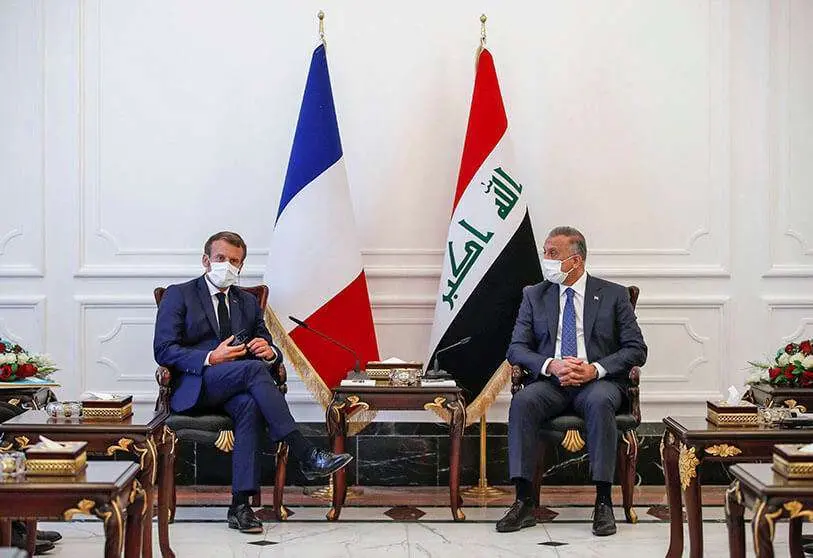Iraq is back on the diplomatic map as the new Middle East mediator

Iraq claimed its return to the diplomatic map with the support of France after decades of instability in the country with its new role as mediator in the Middle East, thanks to a conference in Baghdad that brought arch-enemies Iran and Saudi Arabia to the same table.
"Baghdad's holding of this conference is clear evidence of Iraq's adoption of a policy of balance and positive cooperation in its foreign relations," reads the final communiqué of the Baghdad Cooperation and Partnership Conference, which brought together leaders and decision-makers from the Middle East thanks to the support of French President Emmanuel Macron, who was present at the summit.
At the press conference at the end of the conference, Iraqi Foreign Minister Fuad Hussein said that "Iraq has been a mediator between several countries" and as a result has reached a stage where the country has "an important diplomatic role among neighbouring countries".

The most contentious issue at the summit was that the new Iranian foreign minister, Hosein Amir Abdolahian, and the Saudi foreign minister, Faisal bin Farhan, publicly sat at the same table despite being arch-enemies over recent conflicts and the long-running war in Yemen.
On this issue, Hussein was keen to point out that he could not comment on bilateral relations, while not ruling out that the two countries had met, but considered that this summit meeting would lead to "more meetings at different levels and places".
"It is known that meetings between Saudi Arabia and Iran are ongoing and in fact, these meetings started in Iraq. And what we understood from the two sides is that the two countries intend to reach a positive outcome to solve the outstanding issues between them," he said.
Earlier this year, Iraq hosted rounds of talks that were held in secret until they were officially confirmed days later between Saudi Arabia and Iran, which were significant but have not led to progress on the ground.
Indeed, one of Riyadh's aims in these talks with Tehran is to try to end the war in Yemen, where it leads the Arab coalition against the Iranian-backed Shia Houthi rebels.
Shia-majority Iraq is on the dividing line between Shia Iran and the rest of the Arab bloc in the region, which is mostly Sunni and led by Saudi Arabia.

In addition to Iran, another of the most controversial actors in the region is Qatar, whose delegation was led by the Qatari emir, Tamim bin Hamad al-Zani, who travelled to Baghdad for the first official visit.
The emir took advantage of the conference to meet in parallel with the vice president of the United Arab Emirates, Mohammed bin Rashid al Maktoum, and also with the president of Egypt, Abdelfatah al Sisi.
Both countries had blocked the small Gulf state for years because of its close relationship with Iran, although the veto was lifted earlier this year with the initialling of the Al Ula Declaration.
The Emirati also met with the Iranian in an unusual photographed encounter in which he wished him every "success" in his duties as the new head of diplomacy based "on the principles of wisdom and the interests of nations", tweeted Al Maktum, who called Iran his "neighbour and friend".
The UAE, along with other Gulf countries, has long argued that Iran should stop its activities in the region by providing "financial and military support to its network of militias", referring in particular to the Houthis in Yemen.

The big absentee from the summit, as usual, was Syria, although Iraq has opened the door that its seat will not be left empty at upcoming regional conferences.
"Our opinion is clear: the Syrian government must return to its seat at international meetings and conferences to express its opinion," said Hussein.
However, he pointed out that this conference was about Iraq, so they did not want to "expose the Syrian issue", although he acknowledged that "the unstable situation in Syria affects the stability of Iraq", adding that they have sent the Syrian government the reasons why they have not been invited.








